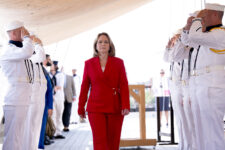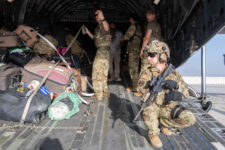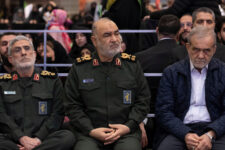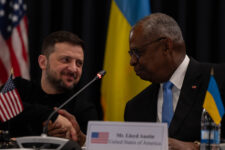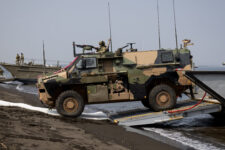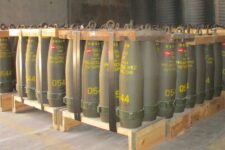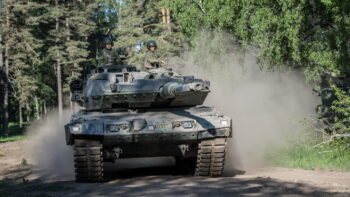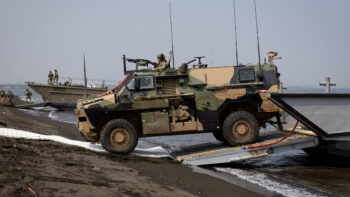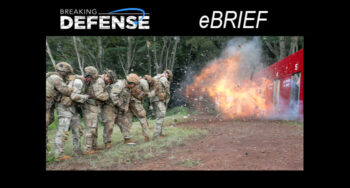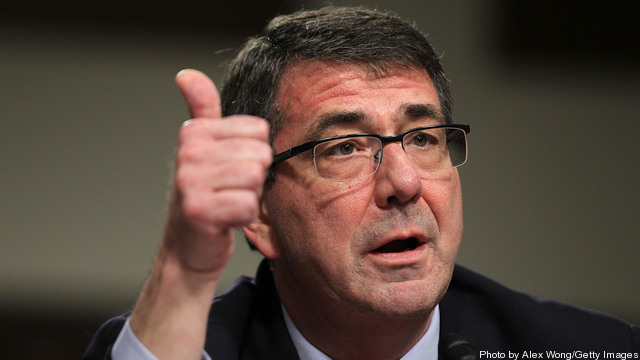
Ashton Carter
WASHINGTON: There’s still no sign of Donald Trump’s transition team at the Pentagon yet, but they’ll probably come this week, Defense Secretary Ashton Carter said this morning. In the meantime, the secretary is walking a tightrope trying to defend his policies on the Islamic State, NATO, and Russia without explicitly disagreeing with a President-elect who hammered them in the elections. It’s a tightrope Carter can’t get off until Inauguration Day, more than two months from now.
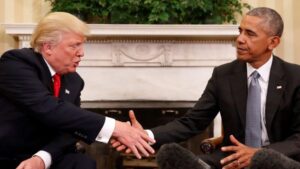 “I am committed to an orderly transition to our new commander-in-chief, President-Elect Trump,” Carter told DC techies at the incubator 1776, and you could feel many in the largely liberal audience flinch at those last three words. “We have procedures in place… settled upon weeks ago,” Carter said. “The transition team hasn’t arrived at the Pentagon yet… They’re expected, I think, sometime this week, but that’s up to them.”
“I am committed to an orderly transition to our new commander-in-chief, President-Elect Trump,” Carter told DC techies at the incubator 1776, and you could feel many in the largely liberal audience flinch at those last three words. “We have procedures in place… settled upon weeks ago,” Carter said. “The transition team hasn’t arrived at the Pentagon yet… They’re expected, I think, sometime this week, but that’s up to them.”
“This has been going on for 240 years, I myself have witnessed transitions in the past,” Carter said, downplaying the exceptional nature of this election. ” I am extremely proud (that) all of our senior leadership have adhered to our tradition to stand apart from the political process… That’s extremely important.”
That Carter and his top officials haven’t explicitly commented on Trump before or after Election Day, however, does not imply consent to his positions. To the contrary:
- Trump has blasted the administration’s campaign against the Islamic State, saying he understands the situation better than the generals and that publicly discussing the Mosul offensive before it started was giving the game away (“How stupid,” Trump said).
- Trump has doubted the value of the NATO alliance, citing our allies’ lower defense spending, and publicly questioned whether the US would defend allies from invasion (“We have many NATO members that aren’t paying their bills,” he said)
- Conversely, Trump has praised Russian strongman Vladimir Putin (“He’s been very nice to me“) and pledged improved relations (“President Trump would be so much better for US-Russian relations. It can’t be worse.”)
Carter addressed all three issues today, delicately. He repeated his longstanding pledge to “destroy” the Islamic State — “What we’ve learned from 15 years that we can defeat ISIL, but…this time we want to make sure they stay defeated” — and said we’d keep the enemy in the dark on what mattered. “There are secret tactics involved,” he said, “(but) the fact that we’re going to Mosul and Raqqa is clear because they’re the two biggest cities.”
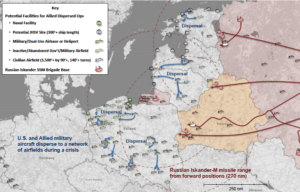
Defense against a notional Russian missile barrage. (CSBA graphic)
In contrast to our war on the Islamic State and our outright hostility with North Korea and Iran, Carter said, “Russia and China are different situations where we have a mixed relationship, where we work together and we seek common purpose, but there are also respects in which those relationships — ah — are competitive.”
On NATO, Carter said the alliance had already survived one great period of questioning — “I remember the days when the Cold War ended and we all were saying, ‘what’s NATO going to do now?'” — and has worked diligently with the US in Afghanistan since 9/11.
So what advice would you give our allies after the election of Donald Trump? “I’m not going to speak about, and I’m certainly not going to speak for, the new administration,” Carter said. “The only thing I would say is engage with the new administration, work with them, stay committed to the values and the principles we have stood for.”
Words matter, and other advice for Trump’s incoming team from Pentagon’s No. 2
“Unlimited budgets don’t help the taxpayer and don’t automatically translate into military strength,” Deputy Defense Secretary Kathleen Hicks also said today.
